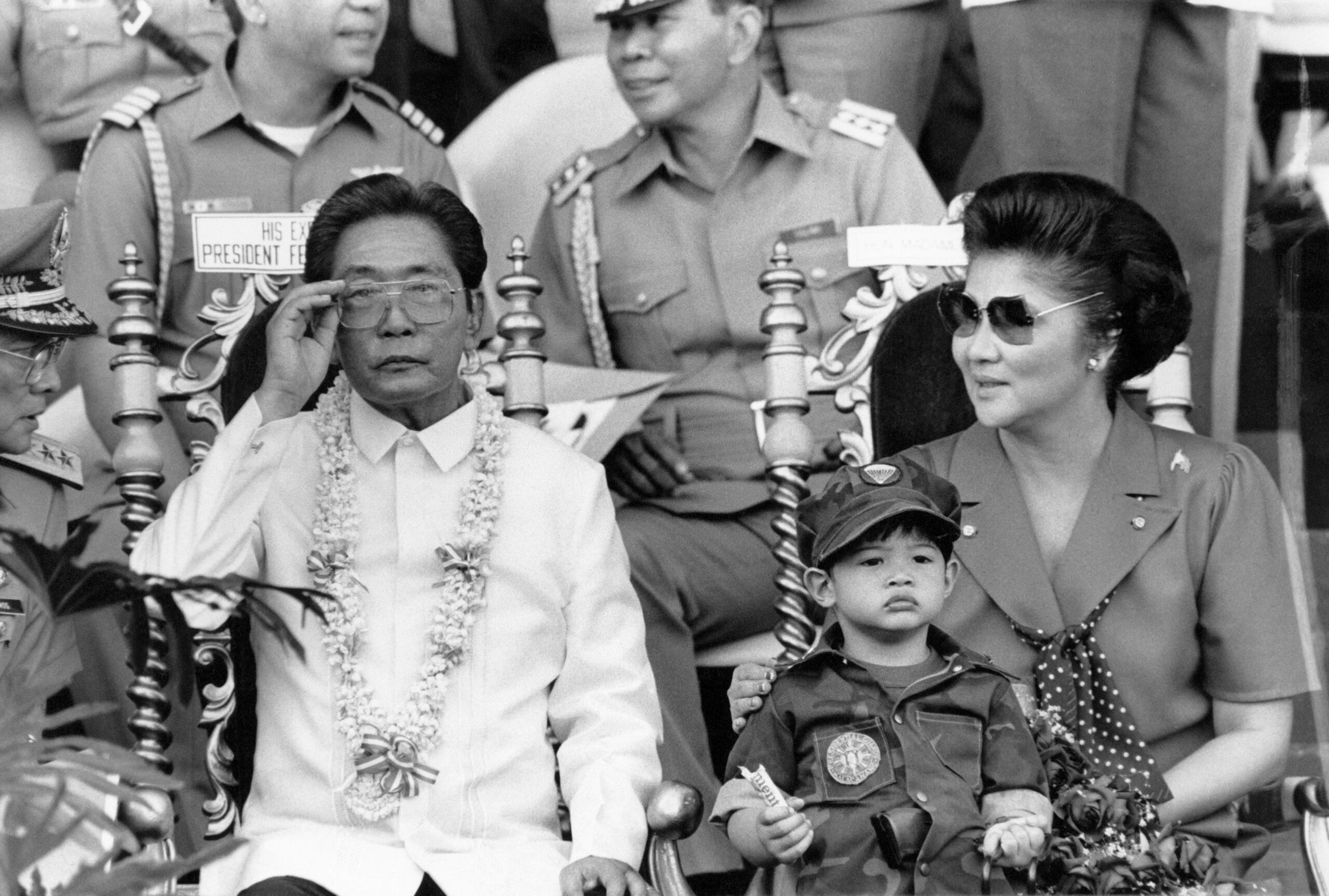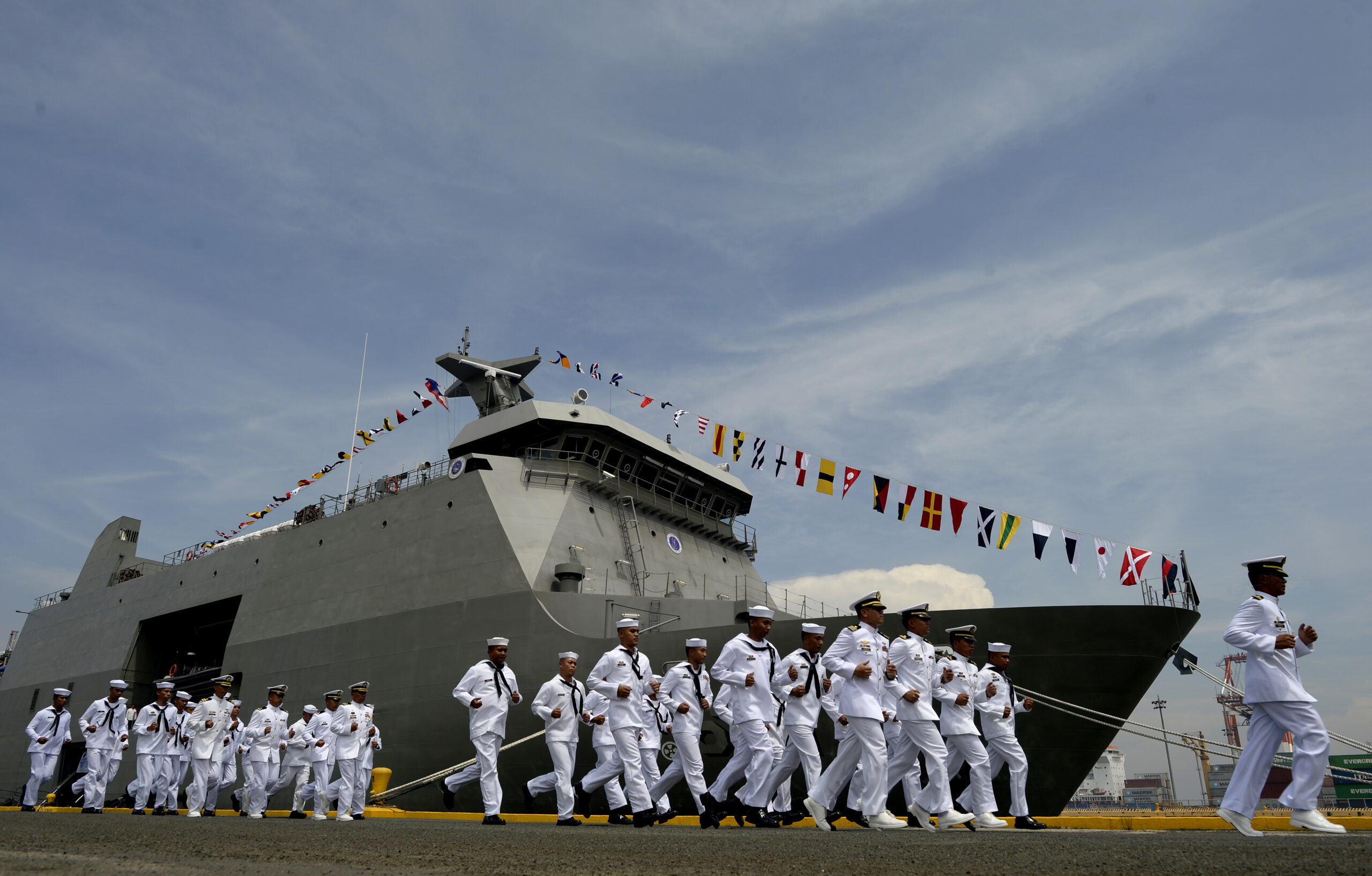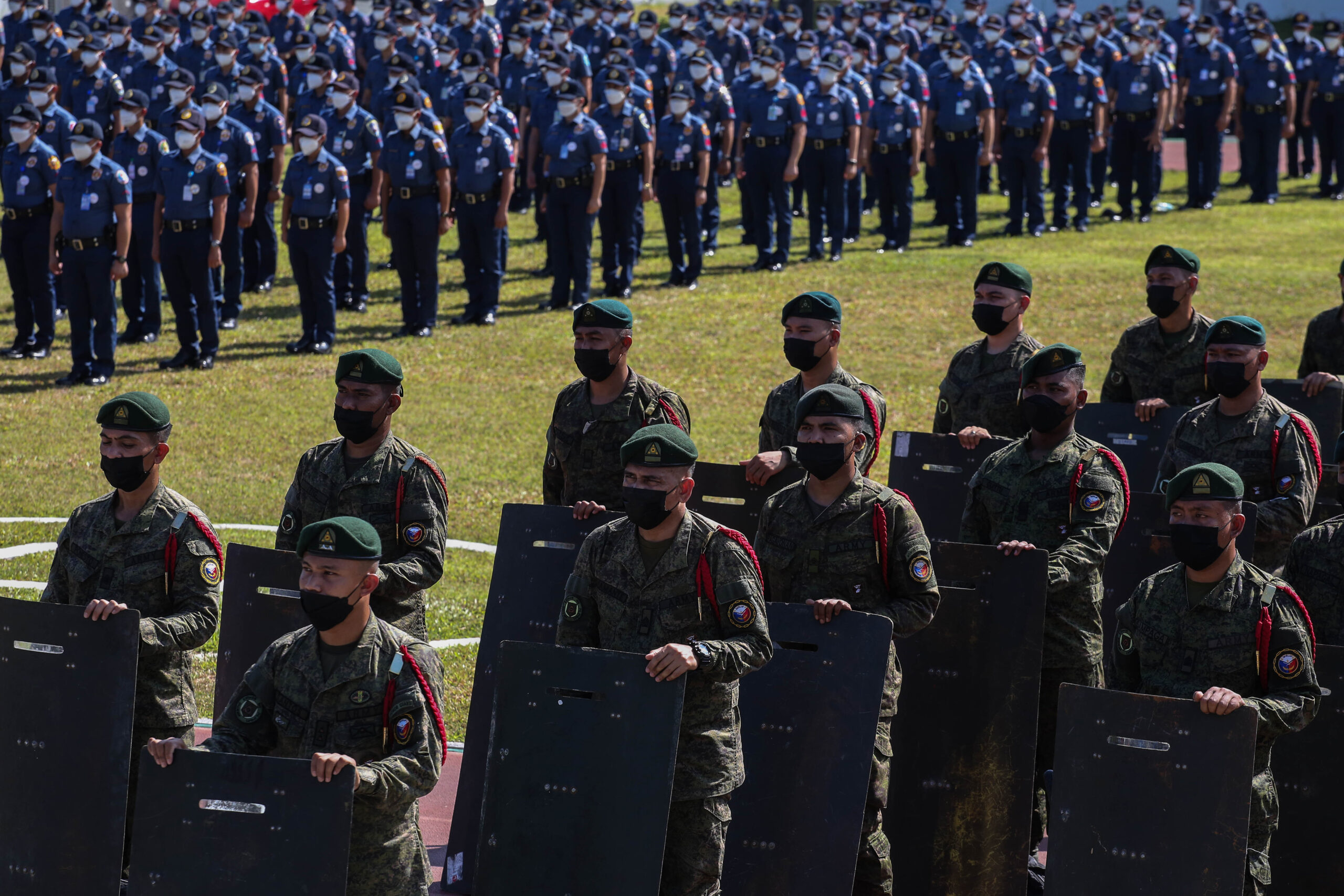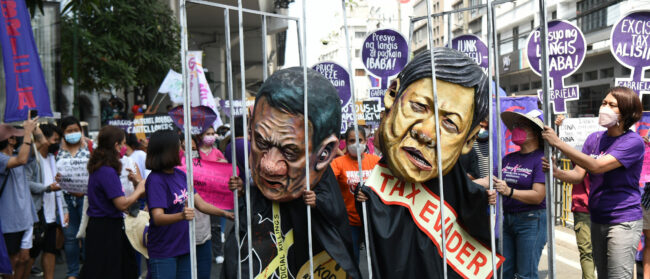Ferdinand “Bongbong” Marcos Jr.’s decisive victory in the 9 May Philippine presidential elections has amplified a painful national conversation about the vicious regime of his father, Ferdinand Sr., which murdered more than 3,000 people and detained, tortured and abused tens of thousands more in the 1970s and 1980s.
The second Marcos to take power in less than 40 years is likely to continue the close military and economic relations with the United Kingdom started under the regimes of his father and outgoing President Rodrigo “The Punisher” Duterte.
Marcos Jr. is a political confederate of Duterte, whose butchery of 30,000 mostly disadvantaged people involved in the narcotics trade – as well as opposition lawyers, activists and politicians – has been enabled by $113 million of British arms and U.K. government assistance with Philippine military training since 2016 when he took office.
Duterte also was underwritten by $2.8 billion in other forms of trade with London in 2018-19. The ruling British Conservative Party’s Foreign Minister Nigel Adams gushed in 2020 that “we can strengthen our links on defence, security and counter-terrorism.”
Declassified documents reveal this was not the first time Britain backed a Philippine tyrant. Despite a nominally ethical export licensing policy, from 1984 to 1986 British arms companies were authorised to sell large amounts of military equipment to Marcos Sr.

Writer James Hamilton-Paterson dubbed Marcos Sr. “America’s Boy” due to his support for U.S. imperialism in the Cold War and willingness to turn the Philippines into a political and economic satellite of Washington, D.C. The British arms sales came as Marcos Sr. grew increasingly oppressive in the face of a popular pro-democracy movement.
Declassified documents from the British Foreign and Commonwealth Office (FCO) and Department of Trade and Industry (DTI) revealed officials were wary of being seen to continue endorsing Philippine despotism.
A licence to vend “equipment of a sensitive nature” was rejected because the “Philippines Constabulary, Integrated National Police and Armed Forces have a very poor human rights record,” according to a 29 November 1985 letter from the FCO to the DTI’s Export Licensing Branch.
This was a month after police shot and killed unarmed protestors on Taft Avenue, Manila, and two months after the Escalante massacre in which paramilitary groups murdered between 20 and 30 students, fisherfolk and plantation workers.
Ambiguities in the policy allowed British firms to apply for export licences worth $3 million (P164.3 million, $979,000 in 1985 prices) for handguns, explosives, targeting devices and communications systems saleable to the Philippine security state.
Now-defunct Intersec Security Services was permitted to sell body armour, weapons sights and explosive charges to the Philippines Ministry of National Defense (MND). A handwritten note in one application by the company objects to 50 anti-riot batons, as the item “falls outwith our standard criteria for the Philippines,” but approves 72 smoke grenades.
At other times, DTI operatives intimated to companies how they might bend the rules. An application from Transac International to sell a “multi-role armoured vehicle” to Manila prompted a message from the FCO to the DTI on 4 February 1986, just days before Marcos held an election widely accused of being a sham.
“If exported from U.K., we would not, at present, be inclined to grant an export licence,” the message stated. “However, as it is, we believe, constructed in West Germany, a U.K. export licence may not be required.”
Curiously, such a furtive approach was not suggested for other equipment applicable directly and lethally against civilians. On 21 March 1985, while there was global outcry at the extrajudicial killing of priest Tullio Favali in Zamboanga province, the DTI agreed to a sale of two L2A3 9mm Sterling submachine guns to the the Arms Corporation of Manila from T.C. Borrie, which has since been dissolved. British officials may have believed the deal, made via Hong Kong-based firm Silay Agencies International Ltd., would be harder to trace.
August and December saw transactions for equipment that could target and trace enemies of the state. Avimo and other companies were allowed to ship night vision goggles, binoculars and weapons sights to the Philippine MND. Many of the items were handheld and likely to be allocated to soldiers, police officers and paramilitaries.
For programmes of extrajudicial slaughter to be efficient, their enforcers must be well-trained. Throughout 1985, British corporations were happy to facilitate such training with 2,000 rounds of blank 50-calibre ammunition from Allivane and a M.A.R.T.A.C. tactical training system from Marconi, worth $348,277 (P14.8 million).

Marcos Sr.’s dirty wars also required state-of-the-art surveillance and communication systems. In 1984 and 1985, M.E.L., a division of the electronics multinational Philips, sent Manila two shipments of Matilda radar alarm and trigger equipment. A little more than a month before Marcos was ousted by the pro-democracy movement, the DTI greenlighted Racal Tacticom’s sale of martial radio gear on 8 January 1986.
Britain seemed prepared to support Marcos’ ambitions to make the Philippines a regional military power, as well as a domestically repressive one. On a much grander logistical scale, a letter dated Valentine’s Day 1985 from the Brooke Marine Ltd. shipbuilding concern referred to negotiations with the Philippines over two naval command ships and four landing ship tanks used for amphibious invasions. No prices were mentioned.
There were several reasons for the UK’s martial support of Philippine autocracy at this time. Ever loyal to US geopolitical aims, Britain pursued much the same double standards as Washington – cutting off relations with Cuba and other dictatorships due to their Soviet allegiances, while supporting other dictatorships like the Philippines because they were nominally part of the ‘free world’. Moreover, while large elements of the British economy were deindustrialised by the Thatcher government in the 1980s, the weapons sector grew in the same period, seeking out new markets all over the world.
In April, the Philippine Navy was in the process of buying a Javelin GL aiming unit from Short Bros. of Belfast, Northern Ireland. The equipment, to be provided on a test basis, could “be used for short range surface to air engagements, and in a secondary role as a surface to surface system.” The value of the possible sale was a whopping $611,845 (P32.8 million, which is now equivalent to $8.57 million (P460.2 million).
Another application from 8 February details Marconi’s export of a Tigerfish heavyweight torpedo, also for demonstration purposes, with a potential worth of $12.24 million (P657.4 million).
The Philippine government was understandably concerned about “foreign submarines… supplying guerrilla forces in the southern islands, particularly Mindanao,” according to government notes from the time.
Marcos’ repression of Muslim separatist rebels in Mindanao, a major island in the southern Philippines, was infamous for war criminality and arbitrary detention.
Like the U.K., the U.S. was a keen supplier of weapons to Manila, albeit to a much larger extent, approving $300 million of foreign military sales credits between 1984 and 1989. Washington additionally pledged $125 million in military aid for the same period, according to historian Brian Hawes.
Understanding and critiquing the ghosts of Marcos’ past are crucial to avoiding a similarly bleak future. The machinations of the British murder industry in the 1980s remain relevant to today’s political situation in the Philippines.
Long before he became president, Marcos Jr. engaged in nefarious historical revisionism by refusing to condemn his father’s crimes and implying that the 1970s and 1980s was a belle époque.
In the runup to the 9 May election, Bongbong weathered a scandal that once again highlighted the British establishment’s connections with the Marcos family. His offence of falsely claiming to hold an Oxford University degree was criticised by the school’s representatives, but no comment emerged from the British government or industrial sector that enabled his father to murder and torture with impunity.
With no sign of London pulling back from its lucrative business arrangements with Manila, it seems history is poised to repeat itself with Marcos Jr. continuing to enjoy British military and economic succour just as Marcos Sr. did. Whether the younger Marcos will replicate the weapons hoarding or more egregious misdeeds of his father, and indeed of his ally Duterte, remains to be seen.

Dr. Tom Sykes is a senior lecturer in creative writing and journalism at the University of Portsmouth in the U.K. He has written about the Philippines for Private Eye, Declassified UK, Monocle, Red Pepper, Morning Star and Southeast Asia Globe. His latest book, Imagining Manila: Literature, Empire and Orientalism, is published by Bloomsbury/IB Tauris.


